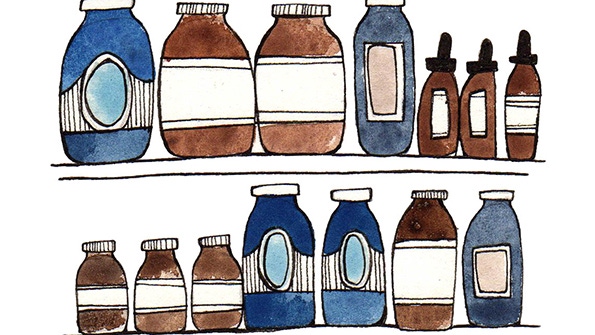
Supplements have taken a beating in the press in recent years, and the firestorm has only grown stronger in 2015. By far the biggest blow came in February, when New York Attorney General Eric Schneiderman ordered four major retailers to stop selling popular herbal supplements after DNA tests suggested the products didn’t contain the correct botanical ingredients.
Before long, Schneiderman had rallied 13 other state attorneys general to cosign a letter to Congress calling for an investigation of herbal supplements and stricter regulations for the entire industry. And despite the all-but-universally conceded fact that DNA barcoding is an inappropriate method of analysis for finished herbal products, these events launched an all-out anti-supplement onslaught in the media. But this time retailers, not just manufacturers, were right in the crosshairs.
Yet even with negative press still circulating many months after the Schneiderman snafu, many experts don’t predict disastrous consequences for the supplement industry. They insist that responsible manufacturers and retailers—and the reputability of supplements overall—can and will survive. But to ensure continued success and profitability in the face of this and future storms, retailers must be ready to respond knowledgeably to customer questions and concerns. You should also remain committed to stocking quality products and continue asking the right questions of manufacturers and suppliers. Here is some help.
Prepare to respond to negative press
 >
>
Tackling customer questions
Bluebonnet Nutrition’s Trisha Sugarek MacDonald offers these tips:
Craft a game plan. Don’t attempt to answer questions unless you can own the issue. That requires knowing the nitty-gritty of the matter so you can address it head-on in a positive way. If you aren’t informed on a topic, don’t try to swing it—that is precisely how misinformation gets out.
But never ignore questions. If you don’t know the answer to a customer’s question regarding an issue in the press, always say, “That is a really good question; let me get back to you.” Get the customer’s contact information, research the topic so you’re able to provide feedback, and reach out to them within two days.
Always answer kindly. This may seem obvious, but it’s highly important that you never respond to consumer questions in an unkind fashion—no matter how much their misunderstanding of a topic frustrates you. Be warm, be open, be honest, but always remain respectful of the topic and the companies involved. Your reputation is everything.
Even though Schneiderman’s investigation and accusations against GNC, Target, Walmart and Walgreens were fraught with issues, retailers are still charged with untangling this media-driven story in the aisles. And unfortunately, this isn’t the first case of the press running amok with a supplement-related issue—and it certainly won’t be the last. “The press loves to bash the supplement industry and try to discredit the efficacy of these products whenever they can,” says Dan Lifton, CEO of Quality of Life Labs in Purchase, New York.
That’s why retailers need to be prepared. You’re almost guaranteed to face at least a few questions from concerned or confused customers whenever supplements make headlines, so proactively educating yourself about the issue at hand is paramount. “Whenever news about a specific supplement comes out, retailers must immediately learn the real story from the supplement manufacturers” that are in the media spotlight, Lifton says. The next step is to share the company’s side of the story with shoppers.
But sometimes it’s supplement ingredients that come under fire. In these cases, the negative press is usually sparked by a new published study or meta-analysis that finds a certain vitamin, mineral or other nutrient is “ineffective” for a certain purpose. Or else research might suggest an ingredient may be dangerous at sky-high doses, which leads to headlines calling that nutrient—at any amount—problematic. Case in point, Lifton points to a review and associated practice guidelines published by the American College of Gastroenterology late last year, which singled out green tea in reference to potential liver toxicity. “The press blew up the green tea story—as usual,” he says. “But in reality, the review confirmed the safety of green tea at normal dosages.”
In instances like this, you can turn to industry trade organizations for help. The American Herbal Products Association (AHPA), Council for Responsible Nutrition (CRN) and other groups oftentimes release information on the maligned ingredient almost immediately, presenting a balanced view of the research in question. For example, in May 2014, AHPA and CRN issued joint comments on the green tea review, pointing out a number of deficiencies with the study. They questioned the researchers’ methods of plant identification and choices of solvents, and poked holes in their overly broad conclusions regarding green tea’s safety. Reading through these viewpoints can help better prepare you to answer potential shopper questions head-on.
Ask manufacturers the tough questions
While DNA barcoding may be an inadequate means of validating finished supplements, the fallout from Schneiderman’s probe prompts an important question: How are the manufacturers you work with validating their products? “Retailers should always question the quality of a manufacturer’s testing,” says Aaron Secrist, director of quality and research and development at Bloomingdale, Illinois-based NOW Foods.

5 questions retailers should ask all supplement suppliers
NOW Foods’ Aaron Secrist suggests retailers get answers to these questions:
1. Do you test every incoming ingredient for identity, potency and purity before you use it in your manufacturing process?
2. Do you test each incoming ingredient lot for likely contaminants before you use it? Do you have your own in-house laboratories or do you use contract labs? If contract labs, which ones? Do you audit these labs to ensure the quality of their analytical methods?
3. Whether you manufacture your own products or use contract manufacturers, is each finished lot tested for potency before release?
4. Is each finished lot of product tested for every label claim that you make before it goes out the door?
5. Do you have a customer complaint program that allows you to detect problems with your products in real time?
This applies not only to the brands and products you already sell but also to any new lines you’re considering carrying, says Trisha Sugarek MacDonald, director of research and development and national educator for Sugar Land, Texas-based Bluebonnet Nutrition. Retailers should especially be asking any potential new suppliers “the right questions,” she says. (See sidebar for examples.)
Part of exercising due diligence with manufacturer selection is finding out which ones offer the best resources to address questions and problems. “Retailers should be comfortable with the resources the supplier makes available to respond to routine questions,” says Jay Jacobowitz, president of Battleboro, Vermont-based consulting firm Retail Insights. “Perhaps they have a staff nutritionist on call, for instance.” Look for manufacturers that are easily able to handle inquiries “about ingredients, production methods and proper usage,” Jacobowitz adds. “Also confirm that the supplier has resources in place for adverse event reporting.”
Lifton says Quality of Life was ready for them. “This information helps address both the efficacy and safety of our supplements since we believe that the only way to validate both is through studies in humans. Animal and in vitro studies are simply not enough.”
The next step after making doubly sure that the products you stock are legit is to educate your staff. Arm your employees with information about individual manufacturers and how their supplements and ingredients are tested so that they can inform shoppers. “If you’ve done your homework vetting suppliers, and you can tell your customers which questions your suppliers have answered to your satisfaction, you will retain their trust,” Secrist says.
You should also ensure that all employees understand how dietary supplements are regulated. “Everyone on your staff should be able to explain how the industry is regulated, because the ‘unregulated’ myth appears in the media all the time,” Secrist says.
Take all of these steps and you’ll be well on your way toward having aisles full of quality products and legions of customers who rely on your knowledge base and trust your judgment in stocking supplements. “Honestly, I believe that the best retailers rarely have quality problems with the supplements they carry because they select their vendors carefully in the first place,” Jacobowitz says.
About the Author(s)
You May Also Like
.png?width=700&auto=webp&quality=80&disable=upscale)




